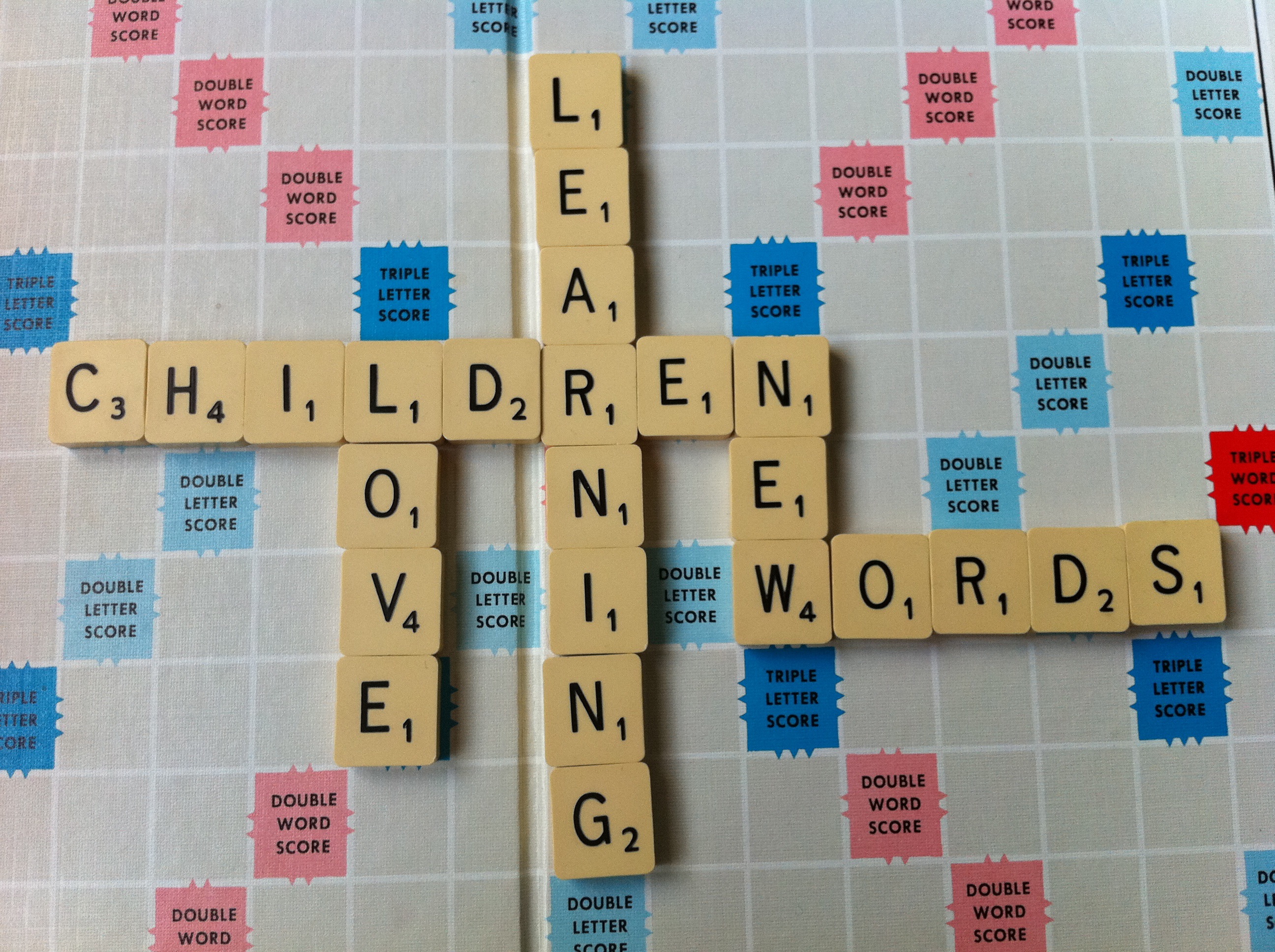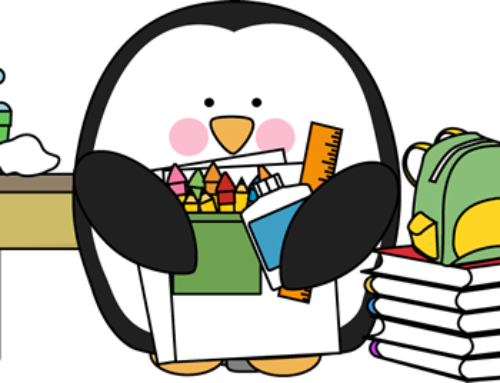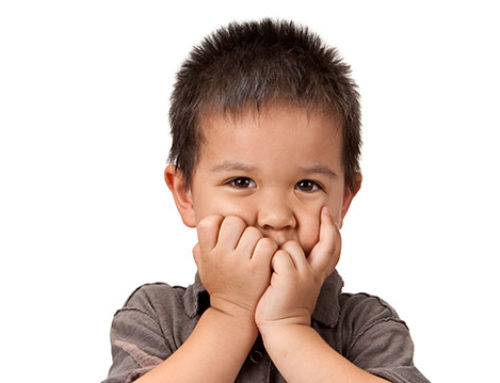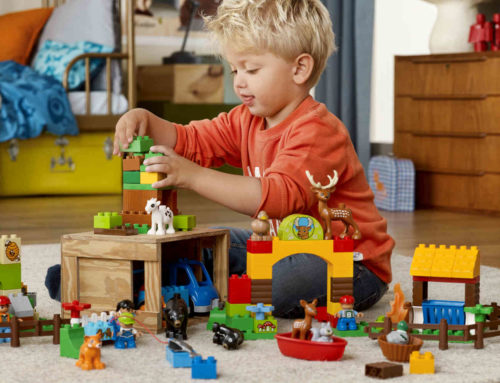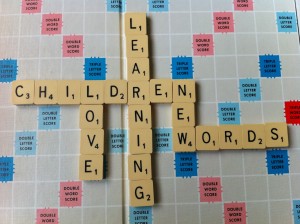 When our children are young we eagerly await their first word. When we say, “Where’s your nose?” and they point to it for the first time we clap and cheer. As they grow, they understand and talk more and more and conversation flows easily. So it’s no wonder that once our children head off to “big school” we tend to think their talking and listening skills are sorted. Now it’s time to focus on the new world of reading and writing! After all, we know our children can follow instructions and ask and answer questions so surely we can tick “talking and listening” off our list as done and dusted!
When our children are young we eagerly await their first word. When we say, “Where’s your nose?” and they point to it for the first time we clap and cheer. As they grow, they understand and talk more and more and conversation flows easily. So it’s no wonder that once our children head off to “big school” we tend to think their talking and listening skills are sorted. Now it’s time to focus on the new world of reading and writing! After all, we know our children can follow instructions and ask and answer questions so surely we can tick “talking and listening” off our list as done and dusted!
Sadly though, this is not the case. Talking and listening skills continue to develop and seeing as they are the foundation for reading and writing skills, we really do need to make sure we are giving our children the opportunity to practice talking and listening, just as much as home readers and spelling lists.
If you missed last week’s post on 10 games to improve your child’s listening skills you can find it here.
Vocabulary development in particular has been shown to have a significant impact on comprehension skills and reading achievement. The good news is there are lots of fun and simple games you can play at home to expand your child’s vocabulary…
1. Alphabet Bingo
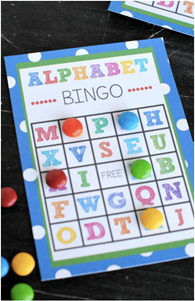
In this game each player is given a game card with letters on it (don’t forget to make the combination of letters on each card slightly different). A category (e.g., animals, adjectives, things that are hot etc) and a letter are chosen. Any player that has the chosen letter on their card must think of an item that belongs to the chosen category and starts with that letter. For example, if the category is animals and the letter is S, the first player might choose snake. They then get to mark S off their card. The next person who has S on their card needs to think of a different animal e.g. seal, in order to mark it off their list also. Play continues with new letters being chosen however the category remains the same until someone has marked off all the letters on their card and called out Bingo!
This is a great game to work on categorisation skills. When you teach categorisation skills, you are not just teaching a single skill but a system for learning, problem solving and organising. You are also teaching the foundation for processing, remembering and integrating new information.
2. Opposite Memory
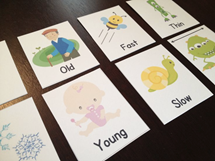
Write down pairs of adjectives that are antonyms (opposites) e.g. hot and cold, huge and tiny, rough and smooth, on small pieces of paper or cards. Place them face down and take turns turning over two words at a time to try and find the matching words. If the words match (e.g. clean and dirty) you keep the pair, if not (e.g., dirty and huge) you turn them face down again and wait for your next turn. Working on antonyms is also a great way to help children learn about the idea of “compare and contrast”.
3. Mystery box
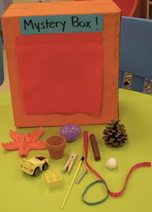
Find a collection of small items from around the home that you can put into a shoe box. Choose items that have different textures and shapes where possible (e.g., a key, a cotton wool ball, a pen, a scouring pad, and a feather). Do not let any of the players see what is inside the box. The first player puts on a blindfold and selects an item from the box. They need to describe what they are holding using 3 adjectives (e.g. it’s soft, light and fluffy). If they know what it is they can make their guess, but if not they can ask the other players questions to try to help them guess what the item is (e.g., Where do you find it?, What is it used for?). When the player has guessed what the item is, or if they have asked 3 questions and still do not know they remove the blindfold and the next player has their turn.
4. Make a face
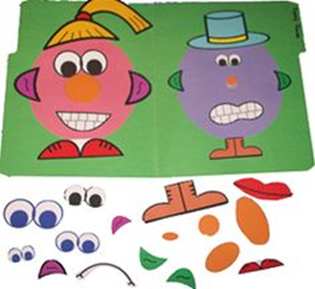
Draw some different types of facial features and cut them up. In this game each player has to direct the other by telling them which features they need to use and where to put them. For example, pick the huge black eyes and place them on the pink face. Pick the tiny round orange nose and put it on the purple face. You can make this task more difficult by giving more than one instruction at a time. This is a great activity to highlight the importance of using specific language when you speak, as opposed to resorting to generic “this one”, “that one”, “here” and “there” labels.
5. What’s missing?
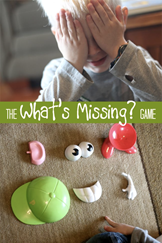
Choose 6 objects and place them on a table. Let the child look at them for 5 seconds and then ask them to close their eyes. Take one of the objects away and ask them to open their eyes again and tell you what is missing. This game can be made more difficult by selecting similar objects (e.g. 6 toy cars that have similar colours or patterns on them) or by moving the items into different positions before the child opens their eyes again.
6. Verb charades
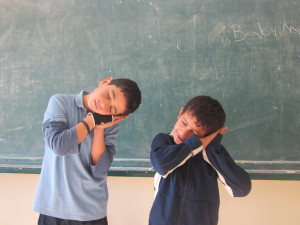 A wonderful and easy game to learn more action words. Write a selection of verbs (action words) on small pieces of paper. For example, dance, eat, swim, stretch, and jump. Fold the pieces of paper in half and put them in a bag so the players cannot see what is written on each one. The first player selects a verb and has to act it out without speaking or making sound effects. The other players have to guess what the action is. For older children make this task more interesting and challenging by using similar verbs such as walk, stroll, pace, wander etc.
A wonderful and easy game to learn more action words. Write a selection of verbs (action words) on small pieces of paper. For example, dance, eat, swim, stretch, and jump. Fold the pieces of paper in half and put them in a bag so the players cannot see what is written on each one. The first player selects a verb and has to act it out without speaking or making sound effects. The other players have to guess what the action is. For older children make this task more interesting and challenging by using similar verbs such as walk, stroll, pace, wander etc.
7. Silly Sentences.
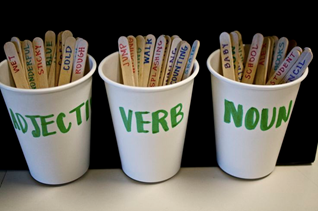
Write some nouns (naming words), verbs (action words) and adjectives (describing words) on paddlepop sticks and ask the players to sort them into separate containers. Once all the sticks have been sorted, ask a child to come up and choose one stick from each container and use the 3 words to create a silly sentence. For example, “The elephant loved to dance in the sticky honey”. Some children find this game absolutely hilarious and start to make up their own even more ridiculous sentences, whereas other find it amusing but quickly point out why that doesn’t make sense and offer a more realistic alternative. Either way it’s a win win for language development!
8. What would you do if…?
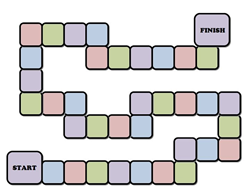
Create a simple game board by drawing a path of squares or circles on a piece of paper. In each shape write a hypothetical situation such as, “you won a million dollars”, “a genie granted you 3 wishes”, “you could pick a super power for a day” etc. Players take turns rolling a dice and when they land on a space they need to tell everyone what they would do if they were faced with that situation.
9. Twister – What’s another way to say…?
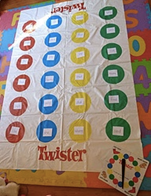
Here’s one for the older kids. Write some common adjectives (e.g., big, small, good, sad, angry, tired etc) on post it notes and stick them onto the different coloured spots. Spin the spinner and follow the instructions (e.g. left foot yellow) however, when the player has picked their spot they also need to read the word on the post it note and pick 3 different words they could use instead. For example, instead of sad you could say, upset, devastated, or miserable.
10. Word meanings
Pick 10 words that your child is unfamiliar with. It may be a new word from a topic being studied at school or it may be a word that came up in a homework task or that they heard on TV. For example, for a younger child you might pick words like mended, feast, or wilderness and for an older child you might look at words such as Tsunami, ambivalent, inquisitive, trepidation, Supernova, or Colosseum. Write each of the words on a piece of paper. Ask your child to stand in the centre of the room and then spread the words out in a wide circle around them. As you put the words down read each one aloud so your child has heard how it is pronounced. Now give (or read) a simple description and ask your child to run and stand next to the word they think is being defined. If they guessed correctly they can pick up that word and stick it with the matching definition. If they picked incorrectly, move on to the next definition. Continue playing until all the words have been correctly defined. If your child is finding this task too difficult use the word in a sentence to help them pick the right answer. For example, “The students visited the Colosseum when they went to Rome”.
So there you have it… Don’t forget that the most important thing is to have fun! It doesn’t matter if they get things right or not. Exposing them to new words and ideas in the context of a game will help it to sink in. If your child doesn’t want to play these games as I have described them that’s fine. Go ahead and change it up. We all know if you try to force a child to “learn” something they don’t care about it will go in one ear and straight out the other. Whereas, if you can make it fun and choose words/topics that they are interested in, they won’t even think of it as being educational. Good luck!
Don’t forget to like us on Facebook for more!

